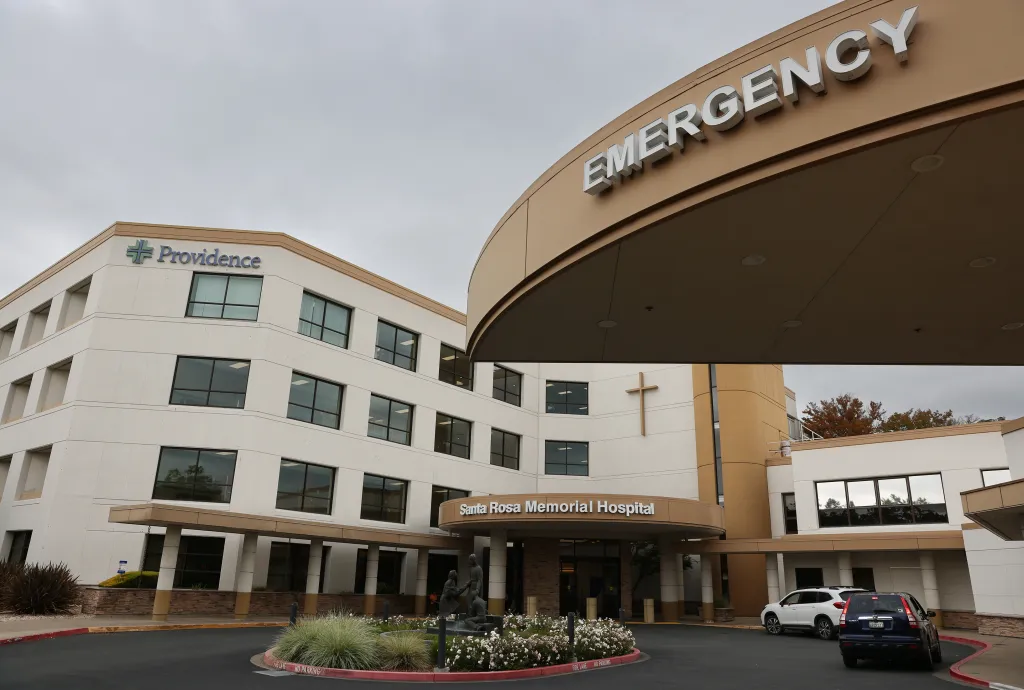Copyright Santa Rosa Press Democrat

We write on behalf of nine outpatient pediatricians of Providence Medical Group, representing more than 175 combined years of service to the children and families of Sonoma County. With heavy hearts, we share our deep concern over Providence’s recent decision to close the inpatient pediatrics ward at Santa Rosa Memorial Hospital. For decades, this small but vital unit has been the only place in Sonoma County where children without Kaiser insurance could be hospitalized close to home. Each year, hundreds of local children are admitted for conditions like pneumonia, asthma, dehydration, seizures, appendicitis or complications from chronic illness. Pediatric patients often get sick quickly and, thankfully, get well quickly. Most need only about two days in the hospital to recover safely under the expert care of pediatric nurses and inpatient pediatricians (called pediatric hospitalists). Without Memorial’s pediatric ward, these children will have to be transported by ambulance or helicopter to hospitals in San Francisco, Oakland or beyond. Even a conservative estimate of 300 transfers to out-of-county hospitals annually, each costing thousands of dollars, suggests sobering financial and emotional consequences. For nearly all families, the prospect of hospitalization far from home is an unimaginable burden. Parents working hourly jobs cannot easily take time off or afford lodging near a distant hospital, leaving children isolated from their families when they need them most. Even for families with resources, the travel, time and stress compound what is already a frightening experience. The ripple effects are larger still. Bay Area children’s hospitals, especially UC San Francisco and Stanford, already face bed shortages and seasonal surges. Even now, during winter months, there can be delays of a day or more before a larger children’s hospital has space for a critically ill child. When no beds are available, children “board” in local emergency departments, spaces designed for short-term stabilization, not ongoing care. If the pediatric ward closes, these boarded children, whose numbers will only increase, will no longer have access to the pediatric doctors and nurses best equipped to provide their care. Providence says the pediatric ward averages fewer than two patients per day and therefore represents an “underutilized resource.” Yet the measure of a hospital service is not its occupancy rate but its availability when it is needed. The pediatric hospitalists at Memorial Hospital are more than ward doctors. They provide pediatric expertise in the emergency department, oversee newborn evaluations, coordinate transfers when necessary and are the only pediatric specialists in the hospital overnight. Their presence ensures that a critically ill child, or a distressed newborn delivered in the middle of the night, receives immediate expert care. Neither general pediatricians, nurse practitioners nor physician assistants can replace their specialized skills and experience. Maintaining 24-hour pediatric hospitalist coverage is essential to patient safety in Sonoma County. Providence justifies the closure in part by citing data showing that about 30% of pediatric inpatient units nationwide closed between 2008 and 2022, claiming that these closures illustrate that care is “best provided at tertiary centers.” In fact, a 2025 analysis published in the journal JAMA Network Open attributes these closures primarily to economic pressures, particularly inadequate Medi-Cal (Medicaid) reimbursement. The result is reduced access to timely pediatric care. The loss of local capacity is not a quality improvement; it is a financial retreat. Pediatric units across California have been closing because of chronic under-reimbursement for children’s care, particularly for patients insured by Medi-Cal, which covers roughly 85% of Memorial’s pediatric inpatients. Medi-Cal reimburses hospitals for only about 75% of the cost of care, among the lowest rates in the nation. These closures are policy failures, not proof that children no longer need local hospital care. We recognize the financial challenges hospitals face, and we appreciate that Providence has maintained a pediatric ward for years despite significant financial losses. But decisions of such profound consequence should not rest solely on a balance sheet, nor should they be made in isolation. We urge Providence to pause this closure, maintain current pediatric hospital services and convene an open, countywide process that includes general pediatricians, pediatric hospitalists, community clinics, Medi-Cal representatives, local hospitals including Kaiser and Sutter, children’s hospital partners such as UCSF Benioff, state government representatives and local families. Together, we can explore creative solutions such as shared regional pediatric beds or increased government support for this essential community service that preserve care close to home. Providence’s nonprofit mission and moral obligation to the community demand transparency and collaboration, especially when children’s lives and family stability are at stake. We, the nine outpatient pediatricians of Providence Medical Group in Sonoma County — Drs. Kate Babington; Deborah Britt; Elizabeth Culhane; Laurie Doolittle; Heather Iezza; Kenneth Prosser; David Smith; Jean Smith; and Elianna Sternfeld — call on Santa Rosa Memorial Hospital leadership to delay this closure and engage in genuine dialogue with all who stand to be affected. Sonoma County’s children deserve nothing less. Drs. Elizabeth Culhane and Heather Iezza at site directors for Providence Pediatrics.



